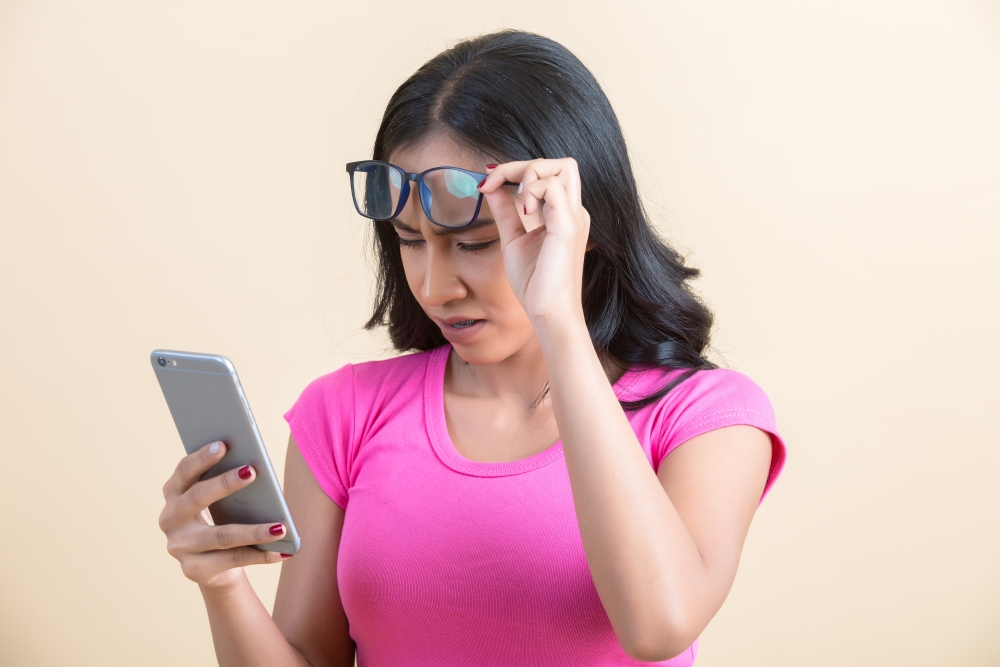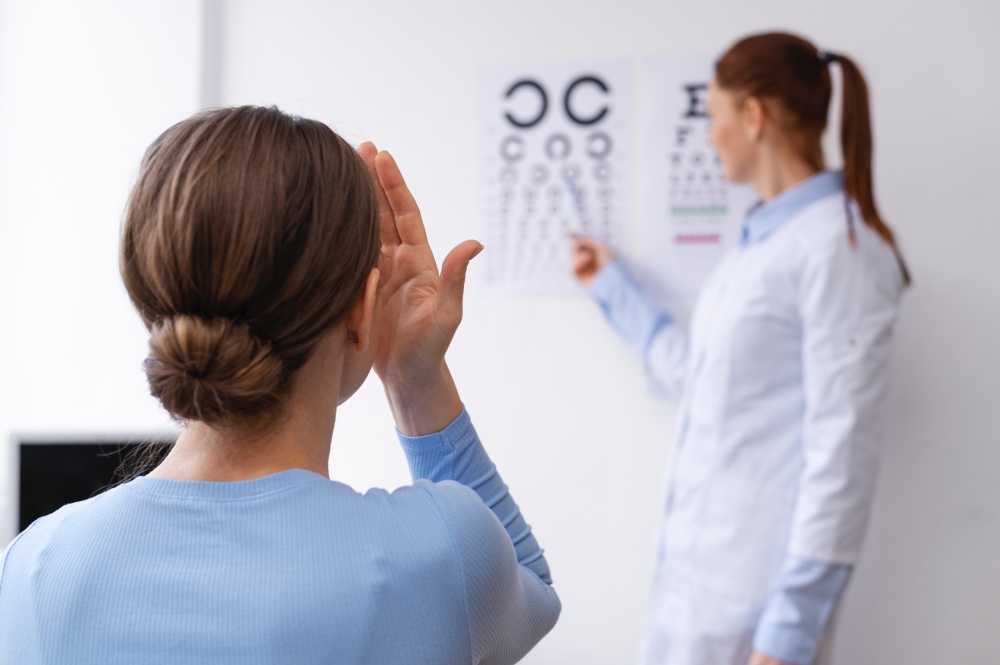Our eyes are remarkable organs, providing us with the gift of sight and allowing us to experience the world in vibrant detail. But like any part of our body, they require routine care and attention to function optimally.
Regular eye tests can help maintain good vision and overall eye health, yet many may overlook the signs indicating a comprehensive eye examination. In this article, we’ll explore some common indicators suggesting when to get an eye specialist in Singapore to check your eye health.
1. Blurred or Fuzzy Vision
Blurred vision, whether it affects your near or far sight, is a common indicator that an eye test is warranted. Difficulty focusing on objects, needing to squint to see clearly, or experiencing a general haziness in your vision can all signal underlying eye problems.
For instance, if you struggle to see distant objects clearly, you may have myopia, a condition where the eyeball is slightly elongated, causing light to focus in front of the retina instead of directly on it. Conversely, if you have issues seeing objects up close, you may have hyperopia, where the eyeball is slightly shorter than average, causing light to focus behind the retina.
Even if you already wear glasses or contact lenses, gradual changes in your vision or persistent blurriness may indicate the need for a new prescription or a reassessment of your eye health.
2. Frequent Headaches
Headaches can be caused by various factors, but persistent headaches, especially those that worsen after reading or prolonged screen use, may be linked to eye strain. Uncorrected vision problems or conditions like astigmatism can force your eye muscles to work harder to focus, leading to fatigue and headaches.
If you find yourself reaching for pain relief medication more often than usual, particularly after visually demanding tasks, it’s advisable to schedule a check-up. An eye test can determine if your headaches stem from an underlying vision problem and whether corrective lenses or other treatments might provide relief.
3. Difficulty Seeing at Night (Night Blindness)
Do you struggle to see clearly in low-light conditions or when driving at night? This difficulty, often referred to as night blindness, can be a sign of underlying eye issues that require attention. Conditions such as cataracts can impair your night vision, making it challenging to navigate dimly lit environments or discern objects in the dark.
If you’re experiencing increased difficulty seeing at night, especially if it’s impacting your safety, scheduling an eye test is advisable. An ophthalmologist can assess your vision and determine the underlying cause of your night blindness, recommending appropriate treatments or management strategies to enhance your visual clarity in low-light settings.
4. Eye Fatigue or Strain
In today’s digital age, our eyes are constantly bombarded with visual stimuli from screens, often leading to eye fatigue or strain. If your eyes feel tired, sore, or gritty, especially after prolonged screen time, reading, or close-up work, it’s a clear sign that you need to get your eyes checked.
Eye strain can manifest in various ways, including:
- Burning or itching sensation in the eyes
- Difficulty focusing
- Headaches
- Blurred vision
- Dry eyes
While eye strain is often associated with digital device use, it can also be a symptom of underlying vision problems or an outdated prescription. An eye test at an eye specialist clinic in Singapore can help determine the cause of your eye fatigue and recommend appropriate measures, such as updated glasses, specialised lenses, or lifestyle adjustments to reduce digital eye strain.
5. Squinting or Closing One Eye to Focus
Squinting or habitually closing one eye to focus on objects can be a telltale sign of eye alignment issues or refractive errors. These actions are often subconscious attempts to compensate for blurry or double vision.
- Amblyopia (Lazy Eye): Amblyopia occurs when the brain favours one eye over the other, leading to reduced vision in the weaker eye. Children with amblyopia often squint or close one eye to see more clearly.
- Strabismus (Crossed Eyes): Strabismus is a condition where the eyes don’t align properly, causing them to look in different directions. Squinting or closing one eye can help temporarily alleviate double vision associated with strabismus.
If you or your child frequently squints or closes one eye to focus, scheduling an eye test with a Singapore eye specialist is advisable. Early detection and treatment of these conditions are recommended to prevent long-term vision problems and ensure optimal visual development.
6. Double Vision
Double vision, also known as diplopia, is a concerning symptom that warrants immediate attention. It involves seeing two images of a single object, which can disrupt daily activities and impair quality of life. Double vision can stem from various underlying causes, including corneal irregularities, eye muscle problems, and neurological issues.
If you experience double vision, you should schedule an eye test with an ophthalmologist immediately. A comprehensive eye examination can help determine the underlying cause of your diplopia and guide appropriate treatment to improve single, clear vision.
7. Frequent Eye Infections or Dryness
Healthy eyes are naturally resilient to infections and maintain optimum moisture for comfort and clear vision. However, recurring eye infections, persistent redness, or chronic dry eyes could indicate underlying eye problems that require professional evaluation.
- Blepharitis: This common condition involves inflammation of the eyelids, often causing redness, itching, and a gritty sensation in the eyes. It can lead to frequent eye infections if not properly managed.
- Chronic Dry Eye: Dry eye syndrome occurs when the eyes don’t produce enough tears or evaporate too quickly, resulting in dryness, irritation, and blurred vision.
If you experience recurring eye infections, persistent redness, or chronic dryness, an eye test can help determine the underlying cause and guide appropriate treatment to alleviate discomfort and improve your eye health.

8. Difficulty Reading or Seeing Small Print
As we age, it’s common to experience changes in our near vision, making it challenging to focus on small print or perform close-up tasks. This often stems from presbyopia, an age-related condition that affects the eye’s ability to accommodate or change focus.
If you find yourself holding books, newspapers, or your phone farther away to read more clearly, or if you experience eye strain and headaches after close-up work, it’s a good indication that you need an eye test. An ophthalmologist can assess your near vision and determine if you require reading glasses, multifocal lenses, or other corrective measures.
9. Changes in Peripheral Vision
Our peripheral vision allows us to see objects and movement outside our direct line of sight. It’s crucial for navigating our surroundings and reacting to potential hazards. Changes in peripheral vision, such as difficulty detecting objects in your side vision or a narrowing of your visual field, can be a warning sign of underlying eye conditions, including glaucoma.
Glaucoma is a group of eye diseases that may damage the optic nerve, often leading to peripheral vision loss. Early detection and treatment are advisable for slowing the progression of glaucoma and preserving your sight. If you notice any changes in your peripheral vision, it’s recommended to schedule an eye test with an ophthalmologist promptly.
10. Increased Sensitivity to Light (Photophobia)
Light sensitivity, or photophobia, can make even moderately bright environments uncomfortable or painful. If you find yourself squinting, shielding your eyes, or experiencing headaches or eye pain in response to light, it could signal an underlying eye condition. Photophobia can be associated with various issues, including eye inflammation, migraines, corneal abrasions, and cataracts.
If you’re experiencing increased sensitivity to light, it’s advisable to schedule an eye test at an eye clinic. An ophthalmologist can evaluate your eyes, determine the underlying cause of your photophobia, and recommend appropriate treatments or management strategies to alleviate your discomfort.
Safeguard your sight with regular eye tests
Our eyes are precious, and being attentive to their health is advisable for preserving our vision and overall well-being. If you experience any symptoms discussed in this article, feel free to schedule an eye check-up in Singapore.
Early detection and intervention can help manage common eye issues and maintain optimal eye health. Remember, regular eye tests are an investment in your long-term vision and quality of life. Schedule your eye test today to ensure your eyes receive the care and attention they deserve.

